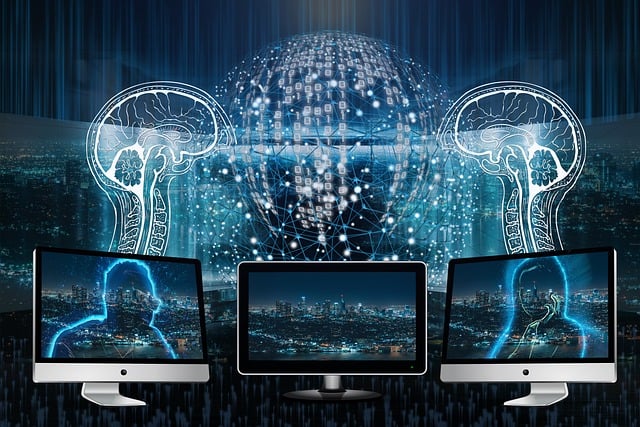
Decoding Intelligent Machines: An In-Depth Exploration of AI’s Potential
This exploration explores the potential and mechanics of Artificial Intelligence (AI), a technology that combines advanced technology with human creativity to create unprecedented solutions.
• Understanding the Foundations of AI
AI focuses on creating systems capable of performing tasks like learning, perception, problem-solving, language understanding, and pattern recognition. Its foundation is algorithms and neural networks, with key developments like machine learning and deep learning. As AI technologies evolve, their sophistication and capabilities expand, enabling new applications and increasing automation’s role across various sectors.
• The Role of Machine Learning in AI
Machine learning (ML) is a crucial aspect of AI, enabling computers to learn from and make predictions based on data. Unlike traditional programming, ML systems identify patterns and make decisions with minimal human intervention. With increased data exposure, ML’s accuracy increases. Its applications span various fields, and advancements in computing power and data availability have accelerated its progress.
• Transforming Industries with Intelligent Automation
AI has transformative potential across various industries, ushering in a new era of intelligent automation. In manufacturing, AI-driven robots enhance precision and efficiency, reducing human error and operational costs. Healthcare has seen revolutionary changes with AI applications in diagnostics, predictive analytics, and personalized medicine, improving patient outcomes and streamlining processes. Financial services benefit from AI in fraud detection, risk assessment, and algorithmic trading, providing higher security and market agility. The retail sector leverages AI for inventory management, customer service, and personalized marketing, significantly enhancing consumer experience. Overall, AI’s integration is driving significant shifts in industry dynamics, productivity, and innovation.
• Ethical Considerations and Challenges in AI Development
Despite its potential, AI development is fraught with ethical considerations and challenges. Privacy concerns arise from the vast amounts of personal data required to train AI systems. There’s also the risk of bias in AI algorithms, often reflecting and perpetuating existing societal prejudices. The opaque nature of complex AI systems, often described as ‘black boxes,’ leads to difficulties in ensuring accountability and transparency. To address these issues, robust ethical frameworks and regulatory oversight are crucial. Researchers and policymakers must collaborate to create AI systems that are not only effective but also fair, transparent, and respectful of individual rights.
• The Future of Human-AI Collaboration
The future of AI lies in enhancing human capabilities rather than replacing them. AI is poised to act as an assistant, augmenting human decision-making with data-driven insights. In creative fields, AI tools can generate music, art, and literature, sparking new forms of creativity and collaboration between humans and machines. In professional environments, AI systems can take over mundane and repetitive tasks, allowing humans to focus on more strategic and creative endeavors. The synergy of human intuition and machine intelligence promises to unlock new levels of innovation and problem-solving, heralding a future where human-AI collaboration becomes the norm.
• The Growing Importance of AI Education and Awareness
As AI becomes increasingly integral to various aspects of life, education and public awareness about AI’s workings and implications are paramount. Educational institutions need to incorporate AI and data science into their curricula, preparing the next generation for an AI-driven future. Beyond formal education, AI literacy must be promoted among the general public to demystify the technology and mitigate fears. Workshops, online courses, and public lectures can play crucial roles in this endeavor. An informed society is better equipped to engage with AI technology critically and constructively, ensuring that its development and deployment are aligned with collective ethical standards and societal needs.
• Conclusion
AI’s journey from theoretical constructs to integral components of our daily lives underscores its monumental potential. This exploration highlights how AI systems’ foundational principles empower diverse applications across industries. Machine learning, as the engine of AI, facilitates remarkable advancements and intelligent automation. However, the bright future AI promises is tempered by significant ethical challenges, necessitating diligent oversight and responsible development. The collaborative synergy of human and machine intelligence foretells a future of unparalleled innovation. As we stand on the cusp of an AI-driven era, fostering AI education and awareness ensures we navigate this transformative landscape thoughtfully and inclusively. AI’s evolution is not merely technological advancement but a sophisticated dance of ingenuity, responsibility, and boundless possibility.



